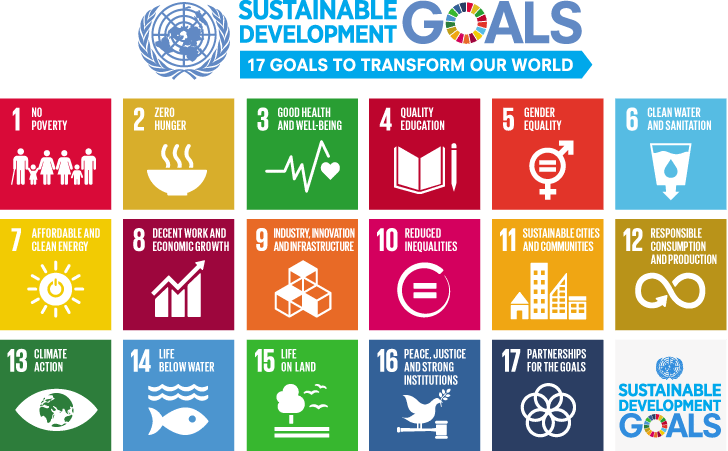2025 marks 10 years since the adoption of the United Nations Sustainable Development Goals (SDGs), 17 goals and 169 targets to ensure human well-being, economic prosperity and environmental protection simultaneously.
—
A decade after world nations agreed on a set of goals to guide global sustainable development, progress remains “alarmingly off track”, according to a new report.
Compiled by the Sustainable Development Solutions Network (SDSN) and now in its tenth edition, the report found that none of the Sustainable Development Goals (SDGs) is on track to be achieved by 2030, and only 17% of targets are on course.
Adopted by all United Nations member states in 2015, the SDGs comprise 17 goals and 169 targets providing a footprint for a global partnership between developed and developing countries to achieve economic prosperity, environmental protections and to safeguard the well-being of people around the world.

Globally, SDG 2 (Zero Hunger), SDG 11 (Sustainable Cities and Communities), SDG 14 (Life Below Water), SDG 15 (Life on Land) and SDG 16 (Peace, Justice and Strong Institutions) are particularly off track, showing no or very limited progress since 2015.
The report, which tracks and ranks the performance of all UN member states on the SDGs, found that global averages mask stark disparities across regions and countries. Despite all but three member countries – Haiti, Myanmar, and the US – having presented national action plans for advancing sustainable development this year, conflicts, structural vulnerabilities as well as limited financing and investments are hindering progress, particularly in emerging and developing economies.
In some cases, progress has been reversed, including on obesity, press freedom, sustainable nitrogen management, extinction rates, and corruption. Meanwhile, access to basic services and infrastructure like mobile broadband, electricity, and internet have improved in many countries, and the report also observed “notable progress” in lowering under-5 mortality rates and neonatal mortality.
European countries are leading in SDG progress. 19 of the top 20 countries are European this year, with Finland, Sweden and Denmark topping the ranking, while East and South Asian countries, including Nepal, Cambodia, the Philippines, Bangladesh and Mongolia, have demonstrated the fastest progress since the goals’ adoption, according to the report.
Barbados topped an index tracking commitment to UN multilateralism, followed by Jamaica and Trinidad and Tobago. The US ranked last.
Under President Donald Trump, the US in recent months withdrew from the Paris Agreement and the World Health Organization, and formerly indicated its opposition to the SDGs and the 2030 Agenda. In March, US representative to the United Nations Edward Heartney said during a UN General Assembly plenary meeting on Tuesday that the 2030 Agenda “advance[s] a program of soft global governance that is inconsistent with US sovereignty and adverse to the rights and interests of Americans.”
💡How can I contribute to a more sustainable planet?
- 🗳️ Vote for climate action: Exercise your democratic rights by supporting candidates and policies that prioritize climate change mitigation and environmental protection. Stay informed with Earth.Org’s election coverage.
- 👣 Reduce your carbon footprint: Make conscious choices to reduce your carbon footprint. Opt for renewable energy sources, conserve energy at home, use public transportation or carpool, and embrace sustainable practices like recycling and composting.
- 💰 Support environmental organizations: Join forces with organizations like Earth.Org and its NGO partners, dedicated to educating the public on environmental issues and solutions, supporting conservation efforts, holding those responsible accountable, and advocating for effective environmental solutions. Your support can amplify their efforts and drive positive change.
- 🌱 Embrace sustainable habits: Make sustainable choices in your everyday life. Reduce single-use plastics, choose eco-friendly products, prioritize a plant-based diet and reduce meat consumption, and opt for sustainable fashion and transportation. Small changes can have a big impact.
- 💬 Be vocal, engage and educate others: Spread awareness about the climate crisis and the importance of environmental stewardship. Engage in conversations, share information, and inspire others to take action. Together, we can create a global movement for a sustainable future.
- 🪧 Stand with climate activists: Show your support for activists on the frontlines of climate action. Attend peaceful protests, rallies, and marches, or join online campaigns to raise awareness and demand policy changes. By amplifying their voices, you contribute to building a stronger movement for climate justice and a sustainable future.
For more actionable steps, visit our ‘What Can I do?‘ page.
This story is funded by readers like you
Our non-profit newsroom provides climate coverage free of charge and advertising. Your one-off or monthly donations play a crucial role in supporting our operations, expanding our reach, and maintaining our editorial independence.
About EO | Mission Statement | Impact & Reach | Write for us








